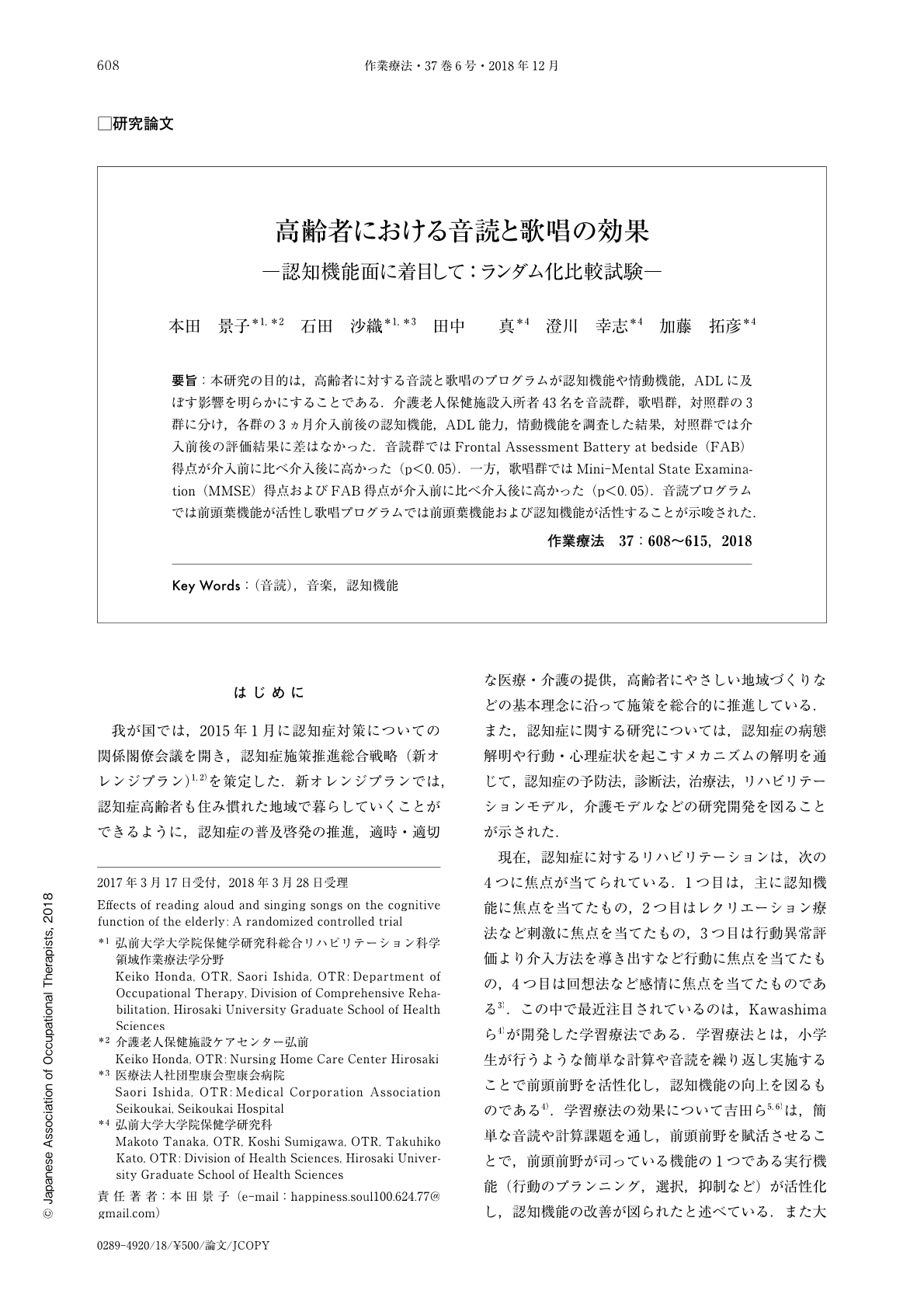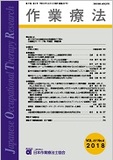Japanese
English
- 販売していません
- Abstract 文献概要
- 1ページ目 Look Inside
- 参考文献 Reference
要旨:本研究の目的は,高齢者に対する音読と歌唱のプログラムが認知機能や情動機能,ADLに及ぼす影響を明らかにすることである.介護老人保健施設入所者43名を音読群,歌唱群,対照群の3群に分け,各群の3ヵ月介入前後の認知機能,ADL能力,情動機能を調査した結果,対照群では介入前後の評価結果に差はなかった.音読群ではFrontal Assessment Battery at bedside(FAB)得点が介入前に比べ介入後に高かった(p<0.05).一方,歌唱群ではMini-Mental State Examination(MMSE)得点およびFAB得点が介入前に比べ介入後に高かった(p<0.05).音読プログラムでは前頭葉機能が活性し歌唱プログラムでは前頭葉機能および認知機能が活性することが示唆された.
Objectives: The purpose of this study was to investigate the effects of programs for reading poems aloud and singing songs on cognitive and emotional function and the ADL of elderly persons. Methods: Forty-three people living in a nursing home were divided into three groups: a group receiving usual rehabilitation plus the reading a poem aloud program (the reading group), a group receiving usual rehabilitation plus the singing a song program (the singing group) and a group receiving only usual rehabilitation (the control group). Each group continued with the study for three months. Assessment items were cognitive function, emotional function and daily living ability. Results: The control group showed no difference from before to after the intervention. In the reading group, the score for the Frontal Assessment Battery at bedside (FAB) after intervention increased more than the scores before intervention (p<0.05). In the singing group, both the Mini-Mental State Examination (MMSE) and FAB scores after intervention increased more than the scores before intervention (p<0.05). Conclusions: In the reading group, reading a poem aloud was effective for improving frontal lobe functions. In the singing group, singing a song was effective for improving both frontal lobe and cognitive functions.

Copyright © 2018, Japanese Association of Occupational Therapists. All rights reserved.


